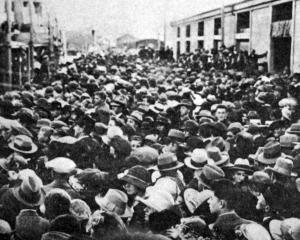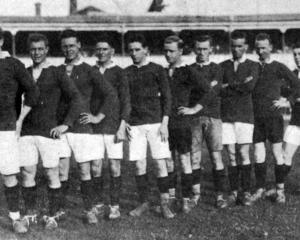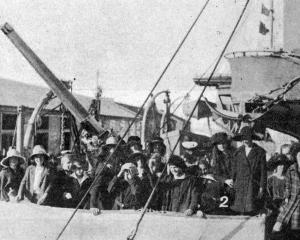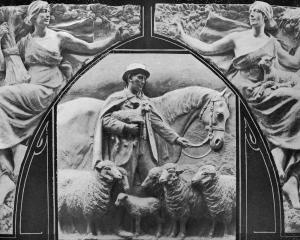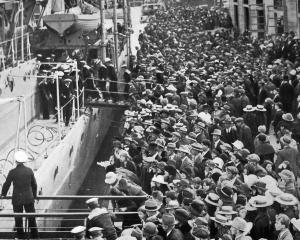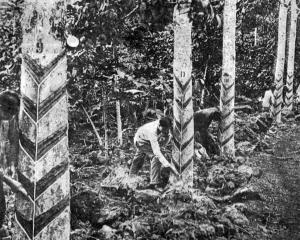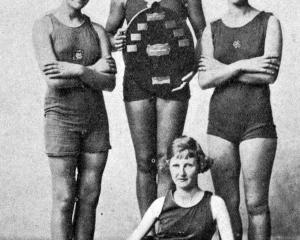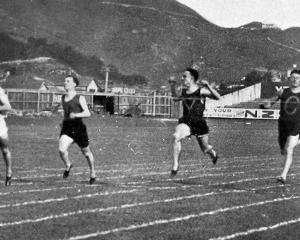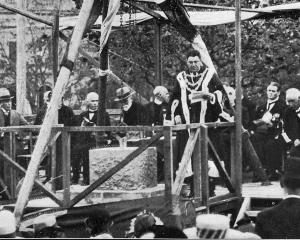It is due, according to this source, to a wound inflicted upon the King during an angry discussion by his consort, Queen Sophia, who is a sister of the German Kaiser.
Notwithstanding her conversion to the Orthodox Greek Church, Queen Sophia remains passionately devoted to the policies of her imperial brother and to the cause of Germany.
A very animated conversation, it is stated, took place in the King's library one evening in April, which developed into a violent quarrel, during which the Queen, whose occasional outbursts of impetuous temper are well known to all about her, seized a sharp-pointed metallic paper knife, and, scarcely realising what she was about to do, being carried away by her hot temper, plunged the paper cutter at her husband's side.
The Queen, so the account proceeds, instantly expressed the deepest sorrow at the consequence of her impetuosity, but the King, naturally viewing the episode on its serious side, earnestly desired that the Queen return to her own family.
The truth was hushed up, and the King, as he would have done in any case, gallantly attributed to influenza the pleurisy which set in owing to the wound.
The latest reports from Athens report the King's condition as far from satisfactory.
Several operations have been performed upon him, one of them for the removal of part of his tenth rib.
It is believed he is suffering from pleurisy with purulent effusion, the treatment of which consists of the removal of one or more ribs and drainage.
• An item of clothing which is blamed by some in the Trentham Camp as conducing to sore throats is the Balaclava cap (says a writer in the New Zealand Herald). A non-commissioned officer, in conversation, held that balaclava caps were not required in New Zealand. They were intended for sub-arctic conditions.
''I know men in this camp,'' he said, ''who would walk along Lambton quay in their civilian day when a southerly was blowing, without overcoats and wearing quite thin clothing. They were quite well then. But as soon as they come into camp they wrap their heads and throats in balaclavas. Then, on a warmer day than usual, they discard the woollen headgear. The result is a relaxed throat, which, as most people know, is a good place for germs to get to work in.''
Not one man in camp has a word of complaint to make about the quality of the boots and clothing issued.
All the items are made in New Zealand, of good leather and of good wool.
In the case of the boots, supplies of oil, with instructions how it is to be used, are issued, the idea being to render the boots waterproof.
Here, again, it is said, the men did not all take the precaution to oil their boots.
• ''The time will come, I am sure,'' remarked Mr Clement Argue during the course of an astronomical lecture delivered at Auckland on Thursday evening (says the Auckland Star), ''when all these wires will be done away with. We are only on the threshold of what can be done with wireless telegraphy. I am certain that the time will come when, with a wireless apparatus each can carry round with him, we will be able to communicate with our friends, as easily as we now talk together face to face.''
- ODT, 14.7.1915.
• COPIES OF PICTURE AVAILABLE FROM ODT FRONT OFFICE, LOWER STUART ST, OR WWW.OTAGOIMAGES.CO.NZ

